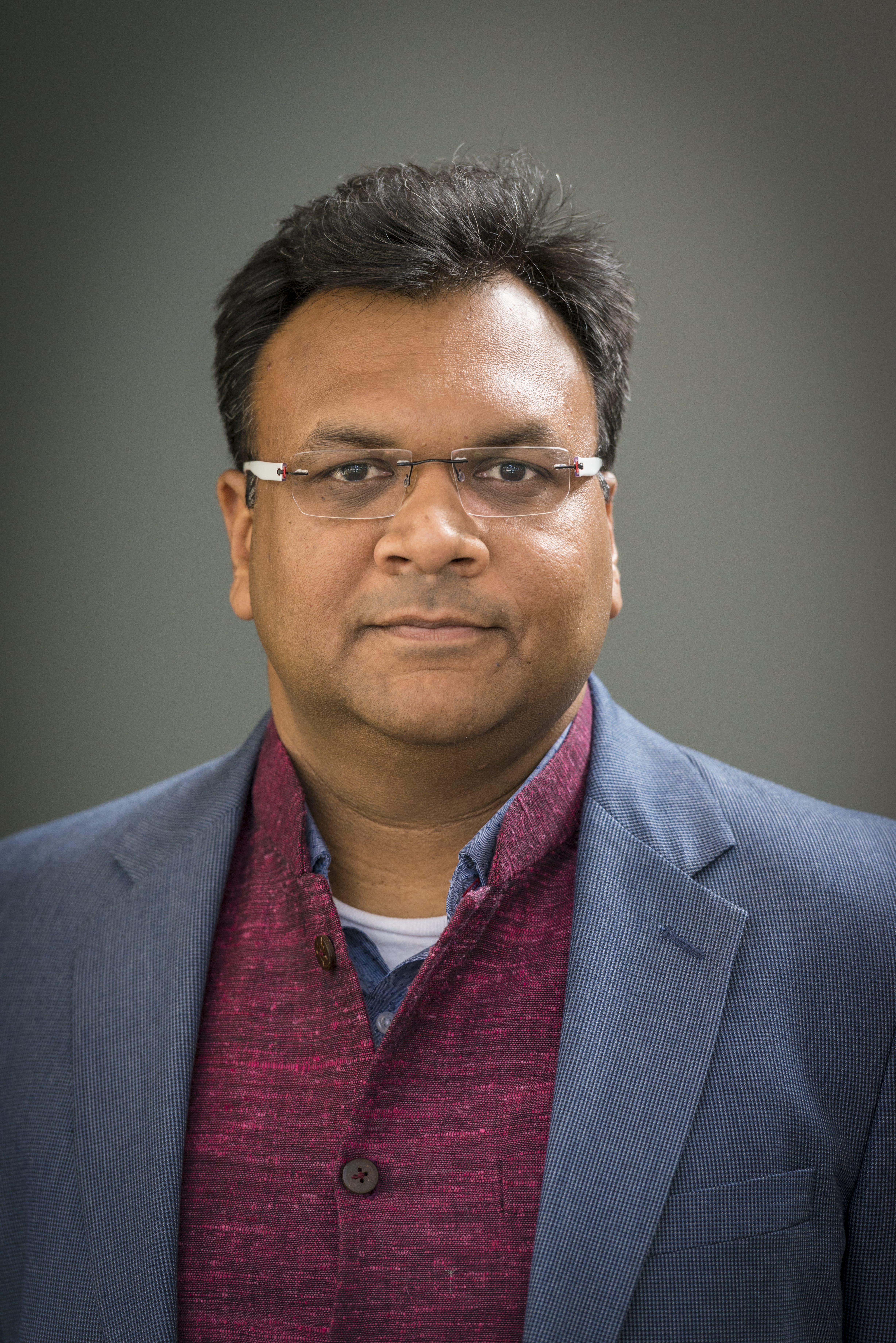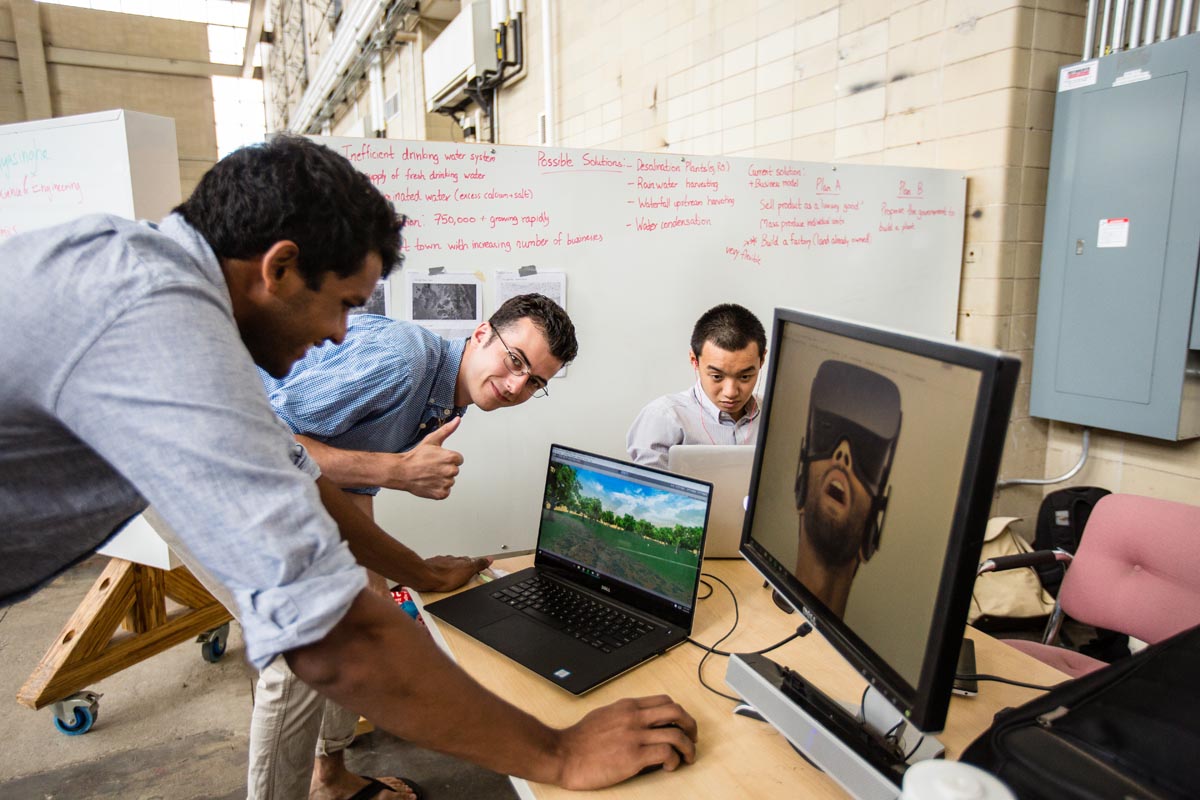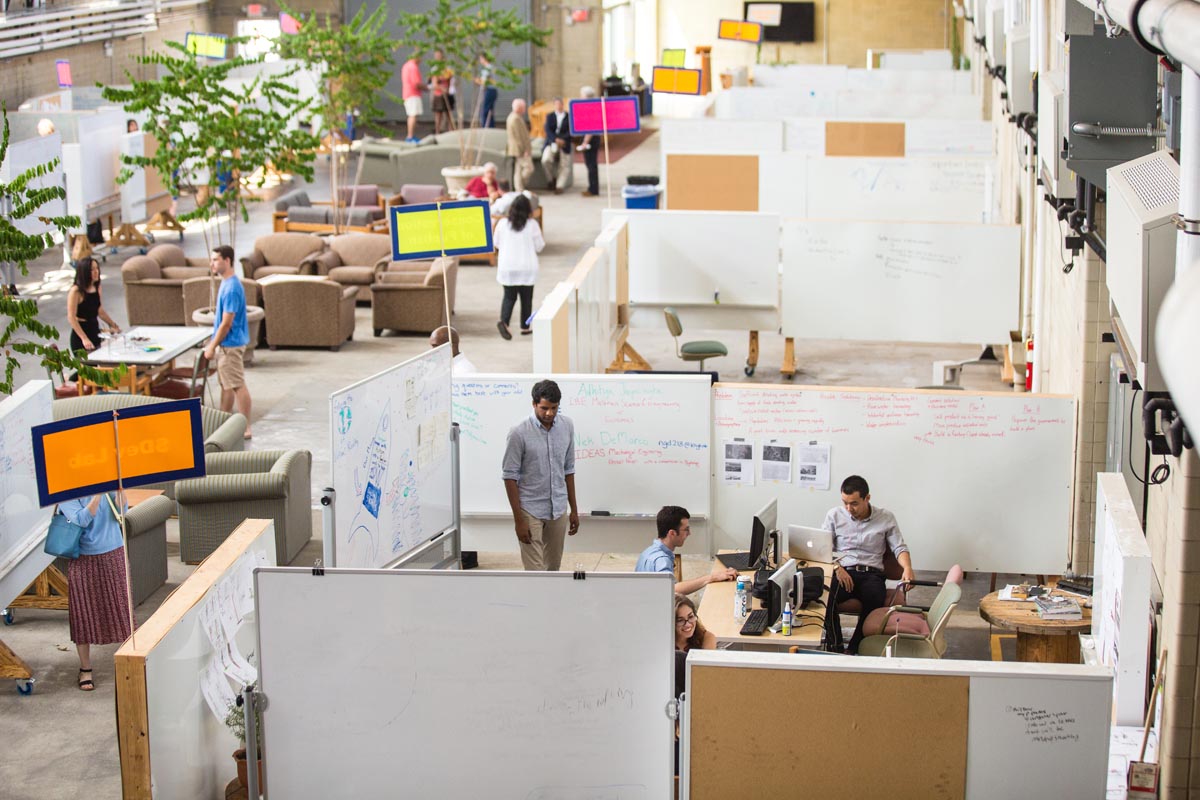For the past three summers, a select cohort of Lehigh students have been exploring big research ideas. They have been tasked with answering some of our generation’s most challenging questions and thanks to a unique learning environment they are given the freedom to fail. That freedom has driven inquiry, discovery, and purpose. This year, the Mountaintop Initiative is being folded into the Lehigh experience, expanding beyond the summer semester into the fall semester, and has now been appointed a new leader.

In December, Lehigh welcomed the first Vice Provost for Creative Inquiry and Director for the Mountaintop Initiative, Khanjan Mehta. Khanjan is working to create and nurture a vibrant and unique learning environment through the Mountaintop Initiative that fosters innovation from thought creation to execution. He shared his vision for the Mountaintop Initiative with us and how it can be a driver for change in a more sustainable world. Here’s what Khanjan told us:
Q1: How have you seen innovation and creativity lead to solutions for a sustainable world?
Well, I could give 100 examples at many different levels of abstraction. We have a team at Lehigh working on “locus” mushroom production systems that are durable, ruggedized, and water efficient. They did this as part of a sustainable development class and they will be in Cambodia this summer to advance the project. They already have about 60 people using these systems in Cambodia and they’re marching forward. So is there a sustainability component there? Absolutely. It’s about economic, social, and environmental sustainability. So it’s not just people on the outside, there are people at Lehigh, people we know around us who are at the forefront of this movement and that to me is extremely exciting. We are not just spectators or observers, but we are the middle of the action trying to change things and make them more sustainable.
Q2: What have your experiences been like in this area?
At Penn State, I had a program in humanitarian engineering and social entrepreneurship and my students designed a greenhouse that increases yields quite substantially and cuts down water consumption by as much as 80 percent. There are more than 350 of these greenhouses now across sub-Saharan Africa and there are about 70 different companies and nonprofits that manufacture and sell these greenhouses. We got started with a sophomore who initiated this project and successfully wrote a half million dollar grant for it.
Q3: What are some of the underlying drivers that you hope students gain during this summer experience?
Creative inquiry—we hope students will learn to ask better questions and use some of the tools in their toolkit to start answering those questions. The scientific method is one approach, but there are also other approaches like design thinking, entrepreneurial thinking, and systems thinking, and we want students to develop those competencies as well. We also hope students will better learn how to work in a multidisciplinary team and develop a mindset of getting things done. The difference between 99 percent and 100 percent is not 1 percent, it’s actually 100 percent. You do something or you don’t. Students have to develop that self-confidence and agency to take radical ownership of their projects at Mountaintop.
Q4: How can this experience transform students to be leaders after they leave the experience?
 Primarily self-efficacy and agency. Can we design these low-cost greenhouses that have never been done before? Can we raise half a million dollars? Can we get these ventures up and running in X countries? When you actually accomplish this, self-efficacy becomes part of your identity. When we take a step back from GPAs and focus on the mind-set, the skill-set, and the portfolio each student develops, they can form a new identity that nobody can take away from them. They begin looking at their careers differently and become more reflective. They realize that there are more opportunities than that dream job at Goldman Sachs. They learn how to fail fast and fail forward.
Primarily self-efficacy and agency. Can we design these low-cost greenhouses that have never been done before? Can we raise half a million dollars? Can we get these ventures up and running in X countries? When you actually accomplish this, self-efficacy becomes part of your identity. When we take a step back from GPAs and focus on the mind-set, the skill-set, and the portfolio each student develops, they can form a new identity that nobody can take away from them. They begin looking at their careers differently and become more reflective. They realize that there are more opportunities than that dream job at Goldman Sachs. They learn how to fail fast and fail forward.
Q5: What impact do you think this could have on how faculty conduct their research/teach?
It can be really transformative for faculty that are open to the idea of giving students the opportunity to be partners or collaborators. They can work shoulder to shoulder to answer these questions and students bring different resources and perspectives to the table. With the right mentorship and spark, students can do amazing things. It’s also about challenging the faculty’s thinking by bringing about fresh ideas. Students don’t know what’s not possible, so they can challenge faculty who take it for granted that it’s not possible.
Q6: What is your vision for Mountaintop?
Let’s see, the renovations are all done and we have a hyperloop going straight from Alumni Memorial to Mountaintop! It’s not about the space, it’s really about building the culture. That will happen over time when we have more students engaging and creating. The Mountaintop culture that is forming is all about creative inquiry, teamwork, value creation, impact, and ethical decision-making.
Now that the Mountaintop Initiative will be available to all undergraduates in the Fall semester, the possibilities are even greater. The teams will include students from even more disciplines, the research questions will be even more creative, and the outcomes may surprise all of us.
